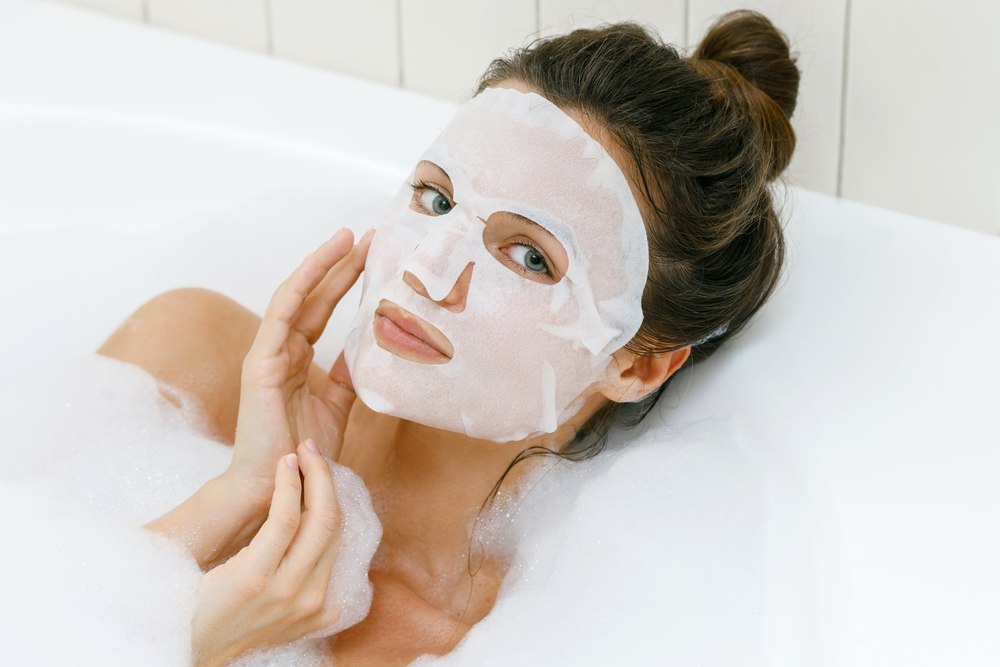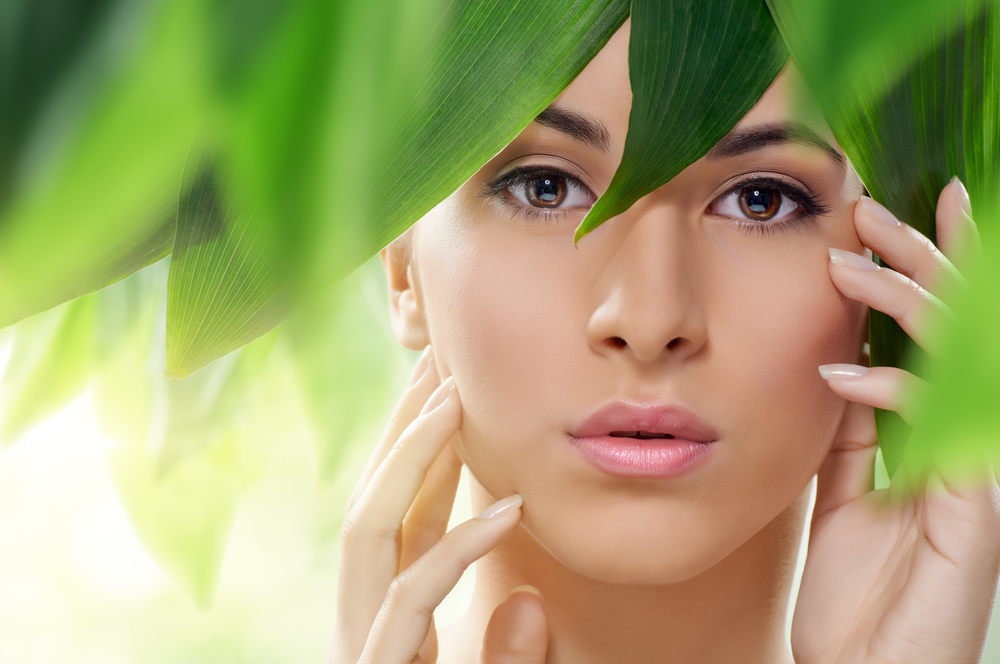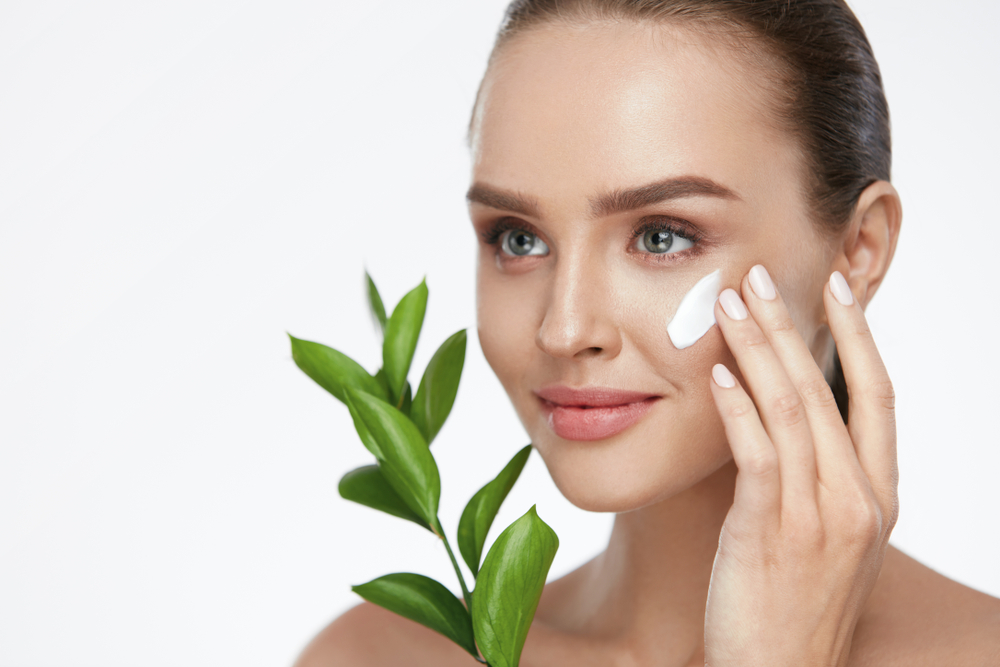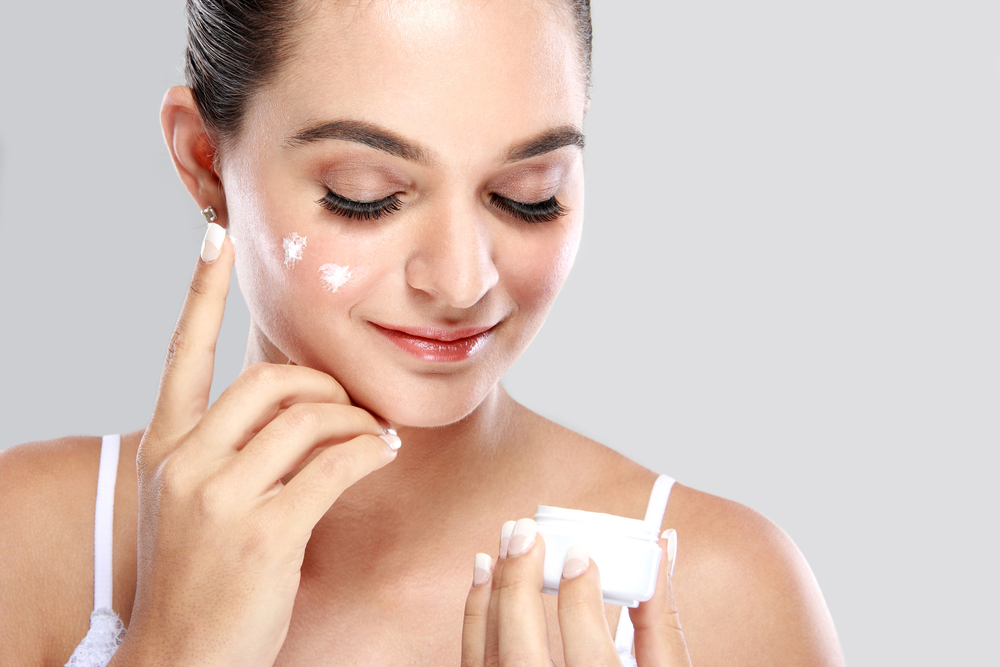- Sheet masks are a special kind of facial mask designed to deliver a quick boost of hydration to the skin.
- Although popular with celebrities on social media, sheet masks come in many forms to fit various budgets and skincare needs.
- Sheet masks can’t replace a full skin care regimen, but they can help to improve uneven skin tone, fine lines, and wrinkles.
What is a sheet mask?
A sheet mask, sometimes referred to as a mask sheet, is a thin material made of coconut pulp, cellulose, cotton, fiber, paper, or gel that is infused with a solution of ingredients beneficial for facial skin health.
Literally shaped like a mask, with holes for eyes, nose, and mouth, sheet masks are sold pre-packaged, making them easy and quick to use.
“The sheet is soaked with a concentrated serum, which contains hyaluronic acid, peptides, antioxidants, vitamins, and other products,” says Dr. Rhonda Q. Klein of Connecticut Dermatology Group. “Since the ingredients are dissolved in the sheet, it prevents quick evaporation and increases efficacy.”
Although sheet masks initially appeared as a part of South Korean skin care routines, they have earned a place among skincare products in Western society. According to several dermatologists, that place is well-deserved due to the hydrating and extra-nourishing effects the masks provide.
How do sheet masks work?
Sheet masks work by forming a barrier between the concentrated serum they contain and the surrounding environment. That barrier allows the serum’s ingredients to penetrate deep into the skin, bringing water along for maximum hydration.
On average, sheet masks are worn for only 10 to 12 minutes, but they produce brighter, fuller, and more glowing skin in even that short period of time.
You may decide to wear the mask longer, but it’s best not to exceed 20 minutes. Overall, the sheet mask should be removed before it starts to feel dry, because the mask will start to reabsorb the moisture it just delivered to the skin.
How do sheet masks compare to regular facial masks?
It’s important to note that a sheet mask and a face mask are not the same thing.
Face masks are the more traditionally recognized form of facial treatment masks, known for alleviating acne, correcting blemishes or dark spots, lightening dark circles, and improving elasticity while nourishing and detoxifying the skin.
Sheet masks are known specifically for their ability to hydrate and nourish.
Face masks, whether it’s a cheap do-it-yourself concoction or a pricey over-the-counter formula, can be messy during application as well as removal. Some face masks even contain ingredients that dry the skin, requiring supplemental moisturization after the face mask is removed.
Sheet masks on the other hand offer many of the benefits of face masks, without the mess and with all the moisturization.
Thick ingredients in a thin sheet
The light, cool, refreshing feel of a sheet mask may make it seem like it’s not doing anything. That couldn’t be further from the truth.
Like all good hydrating skin care products, the number one ingredient in every sheet mask is water. Dissolved in the water is a concentrated supply of beneficial skin care nutrients, including any of the following:
- aloe vera
- kojic acid
- hyaluronic acid
- peptides
- probiotics
- seaweed
- snail extract
- stem cells
- vitamin C
Many sheet masks also contain an ingredient called butylene glycol that, unlike some of its alcohol counterparts, serves as a conditioner to help the serum’s moisture bind to the skin. It also prevents stickiness, thereby contributing to the lightness of the sheet itself.
“By design, most sheet masks are meant to be hydrating and soothing, but there are a range of ingredients for more specific concerns,” says Dr. Sejal Shah of SmarterSkin Dermatology in New York. “For dry skin, look for humectants, such as hyaluronic acid, or reparative ingredients, such as niacinamide. Vitamin C is great for brightening, while peptides and antioxidants are used for their anti-aging properties. For acne, look for masks containing tea tree oil, salicylic acid, or charcoal.”
What do dermatologists have to say?
Sebastopol, CA dermatologist Dr. Cynthia Bailey, founder of Dr. Bailey Skin Care, says sheet masks have been used in professional facials for years. “Also, dermatologists have a long history of using ‘occlusion’ to enhance penetration of actives into the skin.”
Dr. Bailey shares that gel sheet masks will be more occlusive — able to create a stronger seal — than paper ones. She personally loves “a soothing and cool hydro peel sheet mask with ingredients like aloe, green tea, cucumber, hyaluronic acid, and rose hydrosol.”
Overall, Dr. Bailey encourages women to pick a product with ingredients that are soothing but contain no allergens. Her best advice? “Read the ingredients and pick a product your skin will tolerate.”
Dr. Klein advises that not all sheet masks are ideal for achieving all skin care goals.
“Liquid and paste masks may do a better job exfoliating, but it depends on the properties and ingredients of the mask and what you are looking for,” she says. “Sheet masks are perfect for winter dry skin for a weekly or biweekly boost of moisture and hydration.”
Recommended products: Sheet masks worth trying out
Sephora offers a convenient quiz that matches you with products from companies like Estée Lauder, Glow Recipe, K-Beauty, and Tonymoly to fulfill your unique skin care needs.
Here is a list of sheet masks that have received high ratings:
- Garnier SkinActive Moisture Bomb Super Hydrating Sheet Mask
- Neutrogena Deep Clean Purifying 100% Hydrogel Mask
- Dr. Jart+ Water Replenishment Cotton Sheet Mask
- Whamisa Organic Sea Kelp Sheet Mask
- Advanced Night Repair Concentrated Recovery PowerFoil Mask
- Eau Thermale Avène Soothing Sheet Masque
- Elizabeth Arden Probiotic Boost Mask
- SK-II Facial Treatment Mask
The bottom line
Sheet masks come in a variety of styles at various different prices, but all of them offer an abundance of hydration in small, portable packaging. They are safe to use daily. Still, keep in mind that they don’t offer everything you need for optimal facial skin care.
Most dermatologists approve of sheet masks, as long as they contain the right ingredients for your individual needs and aesthetic concerns.
» Want to know more? Ask questions and share your experiences on Zwivel’s skin care forum.









